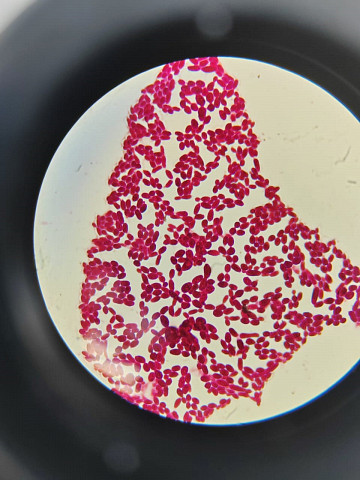Altai State University scientists obtain valuable wound-healing protein from yeast
 Scientists from Altai State University, within the framework of the Priority 2030 Program, are implementing the project “Development of a universal plasmid vector for gene expression in the yeast Saccharomyces boulardii.”
Scientists from Altai State University, within the framework of the Priority 2030 Program, are implementing the project “Development of a universal plasmid vector for gene expression in the yeast Saccharomyces boulardii.”
The focus of the study within the project is angiogenin. This is a protein, a powerful biostimulator of blood vessel formation – a promising drug. Angiogenin promotes the healing of wounds, trophic ulcers, burns, the treatment of heart attacks, cerebral thrombosis and other diseases.
As part of the project, scientists have learned to produce angiogenin based on the yeast Saccharomyces boulardii, which is safe and even beneficial for the body. They are used, for example, to treat various intestinal diseases.
“Previously, angiogenin was obtained in producers based on Escherichia coli (Escherichia coli), yeast Pichia pastoris, mammalian cells, and a method of production from milk is also known. Our method using Saccharomyces boulardii has several advantages. This yeast is absolutely safe, and the proteins obtained with their help can be used for medical purposes, spending less time and money on its purification,” said project leader, master’s student at the Institute of Biology and Biotechnology, laboratory researcher at the Russian-American Anti-Cancer Center of Altai State University Ekaterina Belash.
As part of the Priority 2030 Program, project participants using genetic engineering methods developed a vector for gene expression in yeast. A vector is a genetic construct that contains the angiogenin gene. This vector is introduced into yeast by electroporation, and the angiogenin gene is inserted into the yeast genome. During cultivation, the yeast grows and secretes the protein angiogenin, which can later be used for medical purposes.
Scientists have a lot of work ahead, the end result of which in the long term may be the production of angiogenin on a larger scale.
In addition, as part of the Priority 2030 Program, from October 6 to 16, Ekaterina Belash completed a scientific internship at the State Scientific Center for Virology and Biotechnology “Vector” (Koltsovo, Novosibirsk).
“Together with Vector’s researchers, we delved deeper into the issues of constructing recombinant DNA vectors. Vector scientists have been using the technologies, that we used as part of our project, for a long time. We worked with yeast cells in the laboratory and delved deeper into these methods,” summed up Ekaterina.